第15章 Chapter 5(2)
"People!" he exclaimed. "No! Banish all that! Think yourself a sort of ultra-arctic voyager exploring the desolate places of space. Look at it!"
He waved his hand at the shining whiteness below. "It's dead - dead! Vast extinct volcanoes, lava wildernesses, tumbled wastes of snow, or frozen carbonic acid, or frozen air, and everywhere landslip seams and cracks and gulfs. Nothing happens. Men have watched this planet systematically with telescopes for over two hundred years. How much change do you think they have seen? "
"None."
"They have traced two indisputable landslips, a doubtful crack, and one slight periodic change of colour, and that's all."
"I didn't know they'd traced even that."
"Oh, yes. But as for people!"
"By the way," I asked, how small a thing will the biggest telescopes show upon the moon?"
"One could see a fair-sized church. One could certainly see any towns or buildings, or anything like the handiwork of men. There might perhaps be insects, something in the way of ants, for example, so that they could hide in deep burrows from the lunar light, or some new sort of creatures having no earthly parallel. That is the most probable thing, if we are to find life there at all. Think of the difference in conditions! Life must fit itself to a day as long as fourteen earthly days, a cloudless sun-blaze of fourteen days, and then a night of equal length, growing ever colder and colder under these, cold, sharp stars. In that night there must be cold, the ultimate cold, absolute zero, 273 C. below the earthly freezing point. Whatever life there is must hibernate through that, and rise again each day."
He mused. "One can imagine something worm - like," he said, "taking its air solid as an earth-worm swallows earth, or thick-skinned monsters -"
"By the bye," I said, "why didn't we bring a gun?"
He did not answer that question. "No," he concluded, "we just have to go.
We shall see when we get there."
I remembered something. "Of course, there's my minerals, anyhow," I said;
"whatever the conditions may be."
Presently he told me he wished to alter our course a little by letting the earth tug at us for a moment. He was going to open one earthward blind for thirty seconds. He warned me that it would make my head swim, and advised me to extend my hands against the glass to break my fall. I did as he directed, and thrust my feet against the bales of food cases and air cylinders to prevent their falling upon me. Then with a click the window flew open. I fell clumsily upon hands and face, and saw for a moment between my black extended fingers our mother earth - a planet in a downward sky.
We were still very near - Cavor told me the distance was perhaps eight hundred miles and the huge terrestrial disc filled all heaven. But already it was plain to see that the world was a globe. The land below us was in twilight and vague, but westward the vast gray stretches of the Atlantic shone like molten silver under the receding day. I think I recognised the cloud-dimmed coast-lines of France and Spain and the south of England, and then, with a click, the shutter closed again, and I found myself in a state of extraordinary confusion sliding slowly over the smooth glass.
When at last things settled themselves in my mind again, it seemed quite beyond question that the moon was "down" and under my feet, and that the earth was somewhere away on the level of the horizon - the earth that had been "down" to me and my kindred since the beginning of things.
So slight were the exertions required of us, so easy did the practical annihilation of our weight make all we had to do, that the necessity for taking refreshment did not occur to us for nearly six hours (by Cavor's chronometer) after our start. I was amazed at that lapse of time. Even then I was satisfied with very little. Cavor examined the apparatus for absorbing carbonic acid and water, and pronounced it to be in satisfactory order, our consumption of oxygen having been extraordinarily slight. And our talk 'being exhausted for the time, and there being nothing further for us to do, we gave way to a curious drowsiness that had come upon us, and spreading our blankets on the bottom of the sphere in such a manner as to shut out most of the moonlight, wished each other good-night, and almost immediately fell asleep.
And so, sleeping, and sometimes talking and reading a little, and at times eating, although without any keenness of appetite,3 but for the most part in a sort of quiescence that was neither waking nor slumber, we fell through a space of time that had neither night nor day in it, silently, softly, and swiftly down towards the moon.
It is a curious thing, that while we were in the sphere we felt not the slightest desire for food, nor did we feel the want of it when we abstained. At first we forced our appetites, but afterwards we fasted completely. Altogether we did not consume one-hundredth part of the compressed provisions we had brought with us. The amount of carbonic acid we breathed was also unnaturally low, but why this was, I am quite unable to explain.